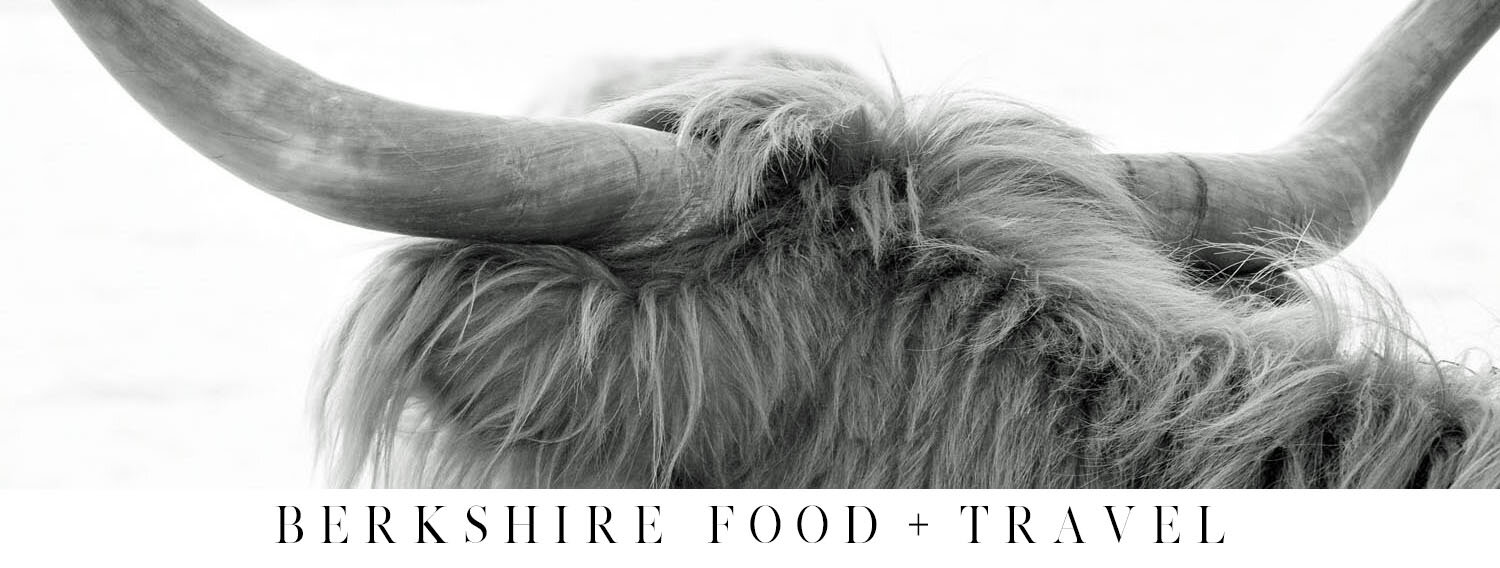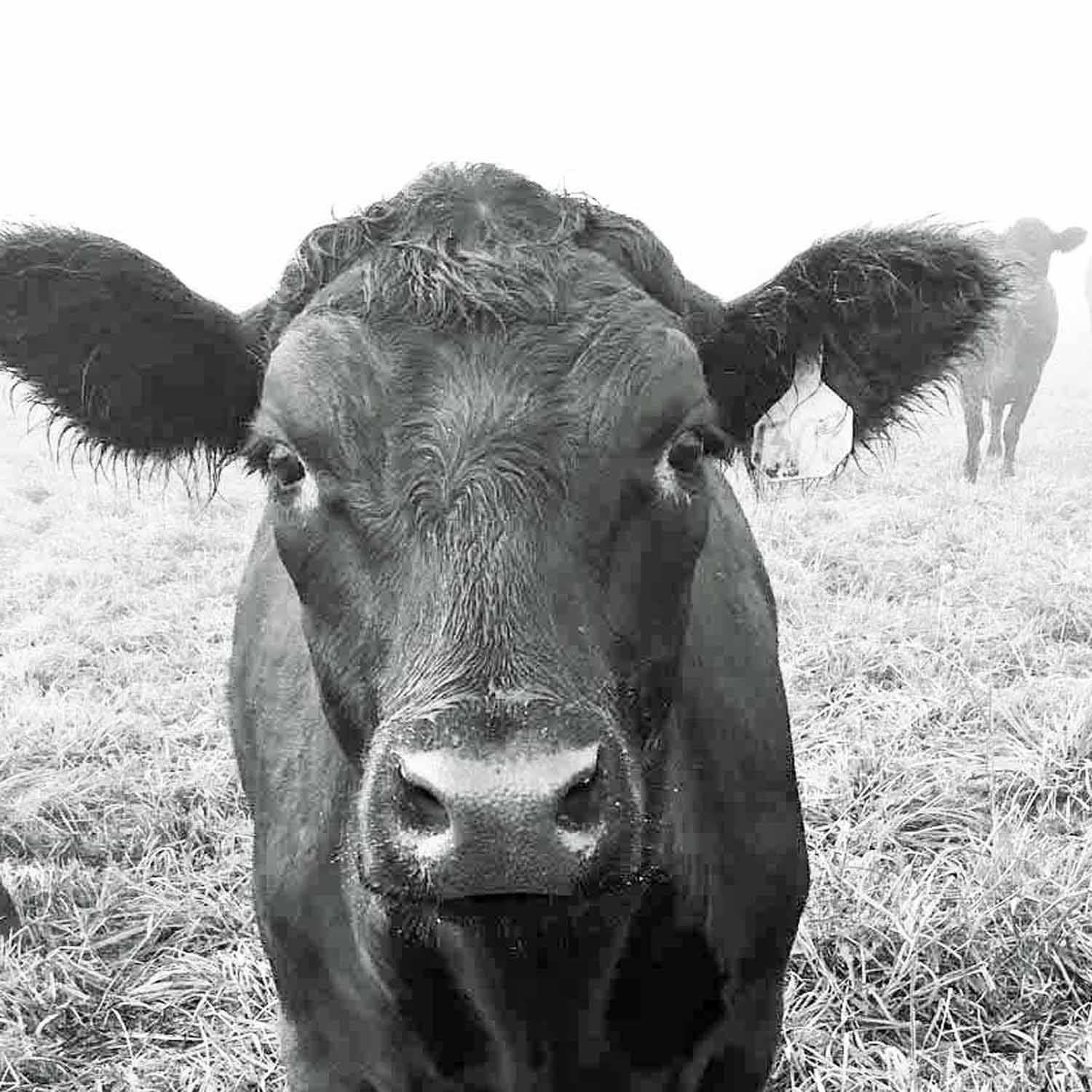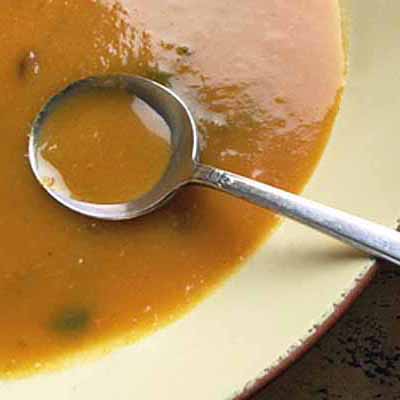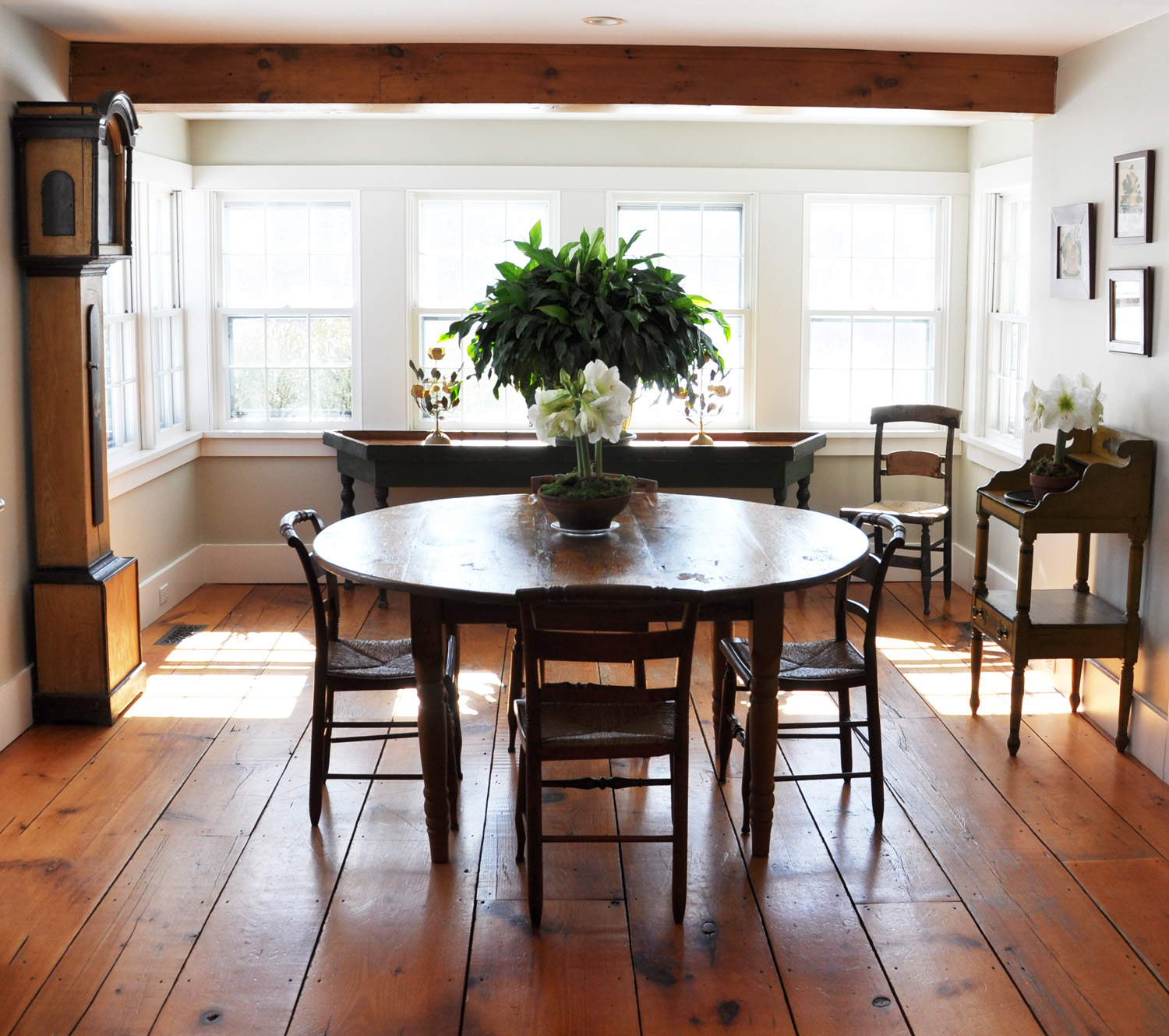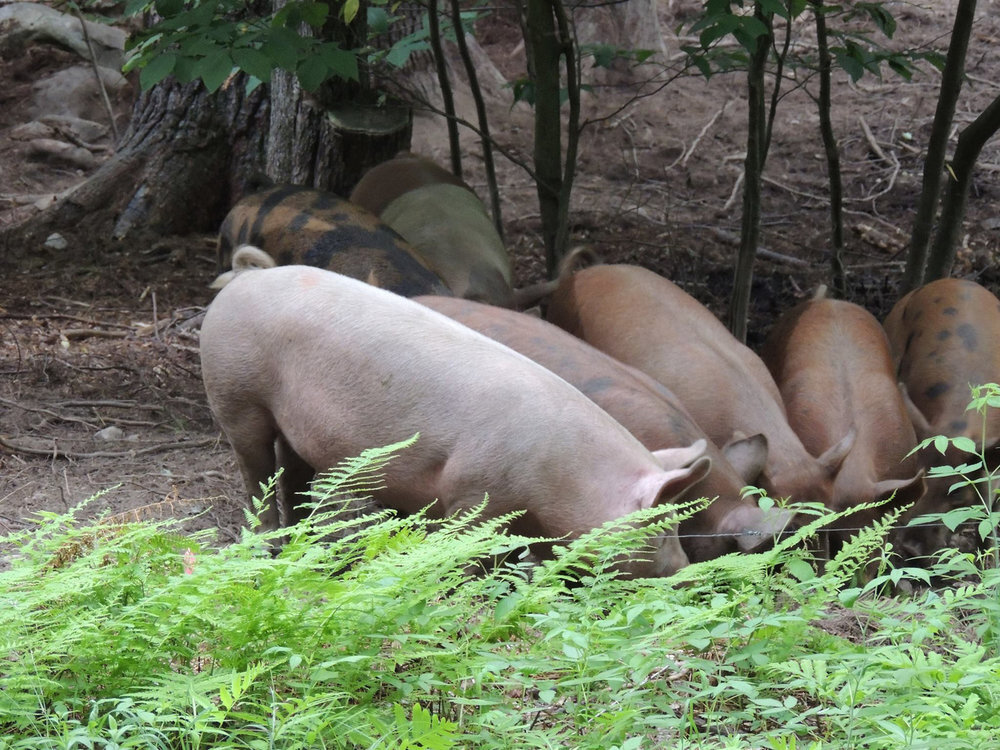BLUE HILL FARM
LOCAL EGGS: See Part II below for Sean Stanton on raising chickens
Sean Stanton manages Blue Hill Farm in Great Barrington, MA.
INTERVIEW: "This time of year (in winter), the day starts at 4:30am. It begins with a drive to Blue Hill, where the cows are. We bring the cows in to the barn, and they all know where they're supposed to go."
"We bring the machine out between them and for each cow the udder gets cleaned and then we have the dip that we dip the teats in. The machine goes on and then we get the milk out with a vacuum pump. After all the cows have been milked, we send them back out to the pasture."
"The cows' gestation is 9 months, so ideally we're having our calves in March. So, they're being milked, and then they're pregnant on top of that, so as the lactation goes along, and the calf is growing inside, and the grasses are changing and the weather is changing, the amount of milk that we get from the cow will also be affected by all of those things. But, we want to know when the calf is due, so the cow can have two months off from being milked. We don't want to milk her right up until the time when she has her calf. It's too hard on the cow and she needs time for her body to recuperate. So, they work hard and they have a good healthy diet. It's not a production diet, but it is a healthy diet. The idea is to have them be healthy. They don't necessarily need to produce ridiculous amounts of milk, but they do need to be healthy and be sound. We'd rather have them eat right and be healthy."
"We fill up the milk bottles with the raw milk that's been filtered and cooled. We put those in the refrigerator and clean the bulk tank and clean the milk room again, and then we have to feed the calves and the baby goats."
"The pigs … we do a couple of different breeds. The boar is a large black, and then we have Berkshire sows and Tamworth sows, that we're crossing. I like the pigs that we get a lot, they have some of the traits that we get from all of the breeds, which is really nice. In the summer, the pigs are up at Blue Hill in the woods. I try and find a place where there are acorn trees. We're bringing in flavors from a bunch of different places: from the whey, from the grain, from the acorns, from the roots and grass that they eat. I think it would be difficult to pick one of those flavors out, when you're eating the pork."
"I've raised turkeys pretty much every year since I started farming. They're probably the most independent animals that I have. I have a place where they go for their food, and they roost in trees around the farm. The thing with turkeys is, they're very fragile when they're young . But, once you get them past a certain age, they become almost indestructible. They're just super-hardy, they'll start becoming much more independent … they'll roost up in the trees, and every night they'll come back to the same tree. And, every morning I'll get up and they'll all fly down. And, they'll walk around together. They'll spend the whole day just walking around the farm. But, I really like the turkeys. I don't know if I'd call them beautiful, but they're really intriguing."
"Chickens are, originally, descendants of a tropical bird, they're not really hardy. The cows can handle the outdoors year round. The pigs can even handle, with shelter, the winter pretty well. But, the chickens are really, I mean they've been adapted, but they don't necessarily want to be out in the snow. If you open up the greenhouse in the winter when there's snow on the ground, at first they won't go outside because there's snow on the ground, and they're not interested in having cold feet. And, then in the spring, they get moved outside to the pasture. And, they follow the cows. And, they clean up the cow-pies, scratch them apart, disrupt any fly larvae or any other parasite, and the parasites don't have an opportunity to increase their population. Which is great for the cows, and it's great for me, because the chickens get a high quality protein source that doesn't really cost me anything, and does the job that I might otherwise have to do with a tractor. The eggs are, no doubt, better in the spring and summer and fall. They're still good in the winter, but they're much better when the chickens are outside on pasture, chasing down worms and crickets and whatever else they can find. But, also eating the plants. If we could keep them on pasture, obviously that would be better. We do give them compost and of course they also get a grain mixture, with small grains and some soy and some corn. It's really difficult to get away from the corn and soybeans, as much as I would like to, it's not easy."
"The relationship that Blue Hill has with Blue Hill Restaurant and Blue Hill at Stone Barns is multi-faceted. Dan and David Barber and their family own Blue Hill Farm, which is a large part of where I'm farming and how it all works. They really have been incredibly supportive of what my ideas are and what my goals are with the farm. They get products from many other local farms, so we're really only just one supplier of many. We had last year a pig roast for all the staff at both Blue Hill restaurants, which was great. If he staff can come to the farm and experience where the food is coming from, it gives them a real sense when they talk to customers in the restaurant, of where the food comes from and how it's raised. And then, they can speak from experience about the process and the types of animals we have at the farm."
Sean has a stand at the Great Barrington Farmer's Market, where he sells eggs and meat.
"I try not to have favorites, but the cows are what I'm really passionate about, for a very specific reason. I tend to be pretty practical, and I can grow the cow's food. I can either grow it as a pasture grass or I can cut and harvest the hay, store it for the winter, and feed the cows 99% of their diet year-round. I mean, the think with a cow is it's a ruminant, so they can eat and properly process grass. Just in terms of what I can produce for the animals, the cows are far and away what I care most about. Because, for me it's about being able to produce food from the land here. With the cows, I can feed them from what's here, and what grows well here. I mean, grass grows really well in New England. I try not to have favorites, but I'm definitely most passionate about the cows."
